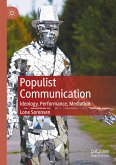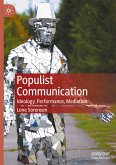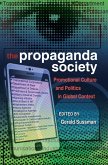A history and analysis of political culture over the last 25 years, "Culture Wars" charts the battle between young politicians in London town halls and their elders in central government. It describes a clash not only between collectivism and market liberalism, but also between social and moral values shaped by different eras. The study focuses on media reporting of the rise and fall of the urban new left in the 1980s, and its recuperation after 1998. The book offers key insights for different disciplines. For media studies, it offers a compelling account of what shapes the media, how the media represent social change, and influence public understanding. For political studies, it reveals how the rise of identity politics was assimilated within a European party and adversarial media system. For sociology, it documents how the rise of women, immigration, gay liberation and concern about the environment were mediated, and became the subjects of societal debate and regulation. For the general reader, it offers a readable and accessible account of how sixties values entered politics, and became the basis of continuing culture wars.
Culture Wars charts the battle between two generations, one shaped by the immediate postwar period and the other by the cultural revolt of the 1960s. It was a clash that first exploded in the 1980s, when the conservative press and government ridiculed radical young politicians as the "loony left." However, the values and political agenda of the urban left made significant advances in the 1990s and 2000s when the sixties generation moved into positions of power. The book also explores how the media represents and influences social change.
Hinweis: Dieser Artikel kann nur an eine deutsche Lieferadresse ausgeliefert werden.
Culture Wars charts the battle between two generations, one shaped by the immediate postwar period and the other by the cultural revolt of the 1960s. It was a clash that first exploded in the 1980s, when the conservative press and government ridiculed radical young politicians as the "loony left." However, the values and political agenda of the urban left made significant advances in the 1990s and 2000s when the sixties generation moved into positions of power. The book also explores how the media represents and influences social change.
Hinweis: Dieser Artikel kann nur an eine deutsche Lieferadresse ausgeliefert werden.








